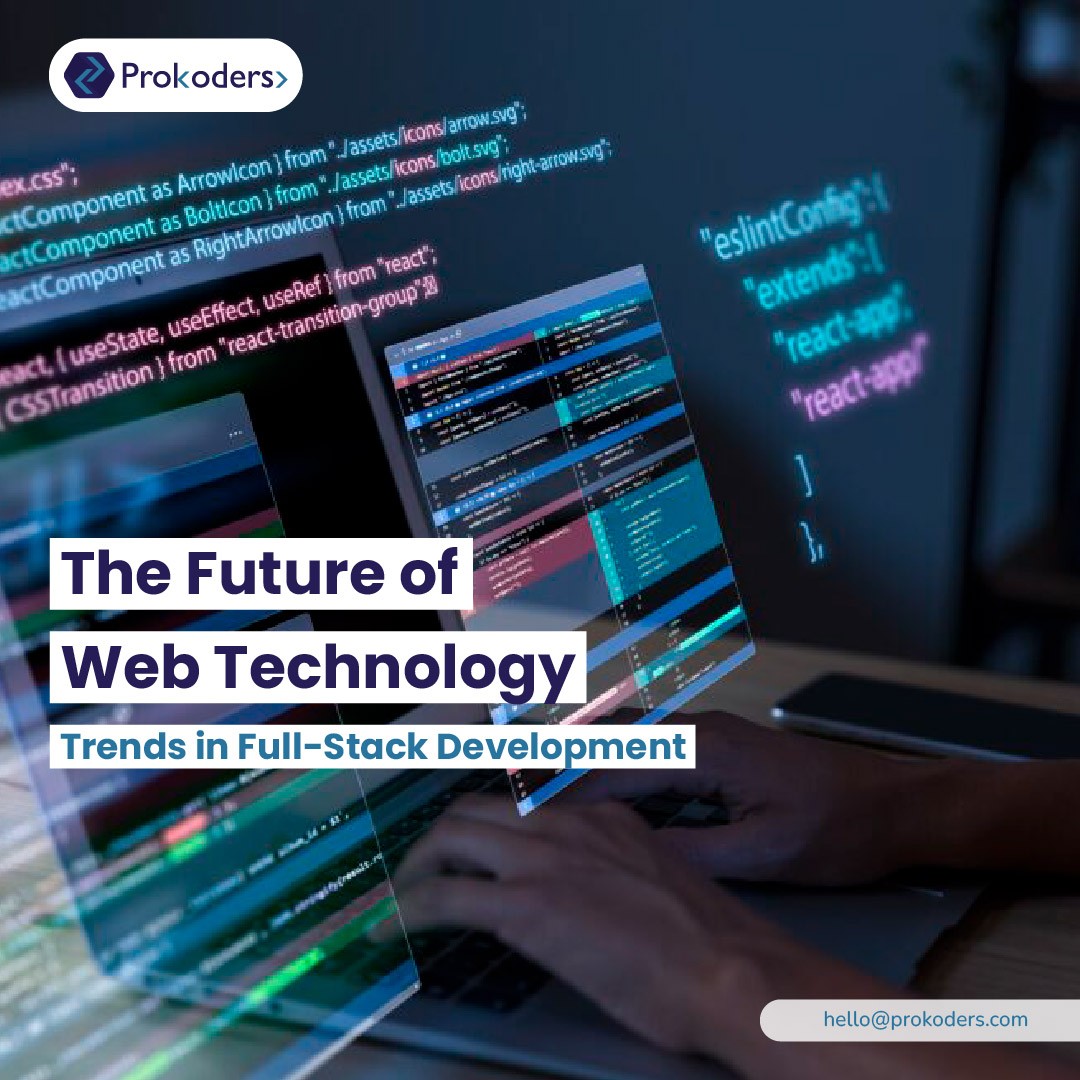
The landscape of web development is continuously evolving, driven by technological advancements, changing user expectations, and emerging trends. In recent years, full-stack development has gained prominence as a comprehensive approach to building web applications. As we look ahead to the future of web technology, understanding the latest trends in full-stack development becomes essential. In this article, we explore the key trends shaping the future of full-stack development and their implications for web developers and businesses.
Rise of JavaScript Frameworks:
continues to dominate the web development ecosystem, with an ever-growing array of frameworks and libraries. Frameworks like React, Angular, and Vue.js have revolutionized front-end development, enabling developers to build dynamic and interactive user interfaces with ease. In the future, we can expect to see further innovation in JavaScript frameworks, with a focus on performance optimization, scalability, and developer experience.
Adoption of Serverless Architecture:
Serverless architecture is gaining traction as a cost-effective and scalable approach to building web applications. With serverless computing platforms like AWS Lambda and Google Cloud Functions, developers can focus on writing code without worrying about managing infrastructure. The future of full-stack development is likely to see increased adoption of serverless architecture, leading to greater efficiency, flexibility, and agility in application development.
Embrace of Progressive Web Apps (PWAs):
Progressive Web Apps (PWAs) combine the best of web and mobile applications, delivering fast, reliable, and engaging user experiences across devices. PWAs leverage modern web technologies like Service Workers and Web App Manifests to enable features such as offline access, push notifications, and installation prompts. As user expectations continue to evolve, the future of full-stack development will see a greater emphasis on building PWAs that offer native-like experiences on the web.
Integration of Artificial Intelligence (AI) and Machine Learning (ML):
Artificial Intelligence (AI) and Machine Learning (ML) are transforming various industries, and web development is no exception. Full-stack developers are increasingly incorporating AI and ML capabilities into web applications to automate tasks, personalize user experiences, and extract insights from data. In the future, AI-powered features such as chatbots, recommendation engines, and predictive analytics will become commonplace in web applications, driving greater efficiency and innovation.
Focus on Cybersecurity:
With the increasing prevalence of cyber threats and data breaches, cybersecurity has become a top priority for web developers and businesses. In the future, full-stack developers will need to pay greater attention to security best practices, such as encryption, authentication, and access control. Additionally, the adoption of DevSecOps practices, which integrate security into the software development lifecycle, will become standard practice in full-stack development
So ,the future of full-stack development is filled with exciting possibilities, driven by advancements in technology and evolving user demands. By embracing trends such as JavaScript frameworks, serverless architecture, PWAs, AI/ML integration, and cybersecurity, developers can create cutting-edge web applications that stand out in today's competitive landscape. At Prokoders, we specialize in harnessing these trends to craft innovative and high-performing web solutions tailored to your business needs. Contact us today to elevate your web development projects and stay ahead of the curve in the digital age.
Services you may concern :
Web Development
Mobile App Services
UI/UX Design
Web and App Hosting
Testing Services
FAQs On The Future of Web Technology: Trends in Full-Stack Development
Full-stack development refers to the practice of building both the front-end (client-side) and back-end (server-side) components of a web application. It's important for the future of web technology because it enables developers to create cohesive, scalable, and feature-rich web applications that meet the evolving needs of users and businesses.
Some emerging trends in full-stack development include the rise of JavaScript frameworks like React, Angular, and Vue.js, adoption of serverless architecture, embrace of Progressive Web Apps (PWAs), integration of artificial intelligence (AI) and machine learning (ML), and focus on cybersecurity.
Full-stack developers can stay updated by actively participating in developer communities, attending conferences and workshops, following industry blogs and publications, taking online courses and tutorials, and experimenting with new technologies through personal projects.
Hiring a full-stack development team offers several benefits, including streamlined communication and collaboration, faster development cycles, cost savings, and the ability to work on both front-end and back-end components of the project seamlessly.
Prokoders specializes in full-stack development services, offering expertise in a wide range of technologies and frameworks. Whether you need assistance with building a new web application, optimizing an existing one, or integrating advanced features like AI/ML, Prokoders can provide tailored solutions to meet your specific needs and objectives.